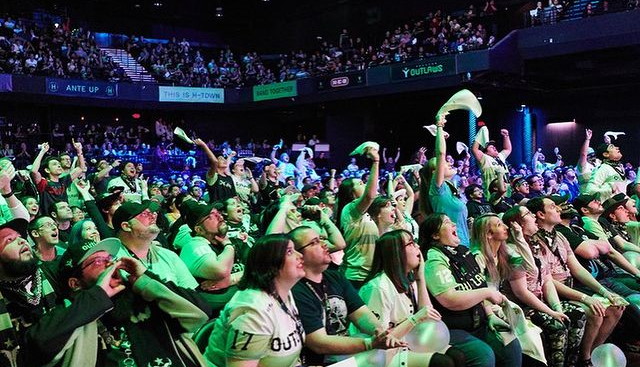Activision isn't sure how long the Overwatch League and CoD League will last, says efforts to address challenges 'may prove unsuccessful'
Activision said in a recent SEC filing that the Overwatch and Call of Duty Leagues continue to face 'headwinds.'

It looks like Activision Blizzard's Overwatch and Call of Duty pro leagues could be in trouble. In a new filing with the US Securities and Exchange Commission, the company said that both leagues are facing challenges that could undermine their long-term viability, and it's not sure if it will be able to address them.
The Overwatch League was a bold initiative when it was announced in 2016: A league of city-based teams that would compete across seasons in home-and-away matches, leading into playoffs and a championship. Basically the same as a conventional sports league, in other words, and with comparably steep buy-in costs that made it tough to sign franchises.
The league was faced with an even greater challenge shortly after it launched—adn before it properly found its footing—when the third season was derailed by the Covid-19 pandemic, which eventually led to roughly 50 employees being let go because of the league's reduced focus on live esports events. Things got even worse later in 2021, when major sponsors began pulling out following revelations of widespread discrimination and sexual harassment at Activision Blizzard. Five years after the start of the Overwatch League's first season, it still hasn't fully recovered from the up-ending: Sponsors haven't returned, and full-time city-based gameplay remains a distant dream.
(The Call of Duty League debuted a couple years after the Overwatch League, in 2019, but was played on PlayStation 4 consoles until 2021.)
In a Form 10-Q filing with the SEC made on May 4, Activision Blizzard acknowledged that the headaches are starting to pile up.
"Our collaborative arrangements for our professional esports leagues (i.e., the Overwatch League and the Call of Duty League) continue to face headwinds which are negatively impacting the operations and, potentially, the longevity of the leagues under the current business model," the filing says. "We continue to work to address these challenges, which could result in significant costs, and such efforts may prove unsuccessful."
That's a long way from throwing in the towel on the whole thing, and in fact Overwatch League head Sean Miller told Dexerto that Activision Blizzard remains "committed to Overwatch esports and growing a community," and that it's "not going away anytime soon." It's also worth noting that, generally speaking, securities filings like this are obligated to cover all the bases, even relatively remote possibilities that aren't likely to occur.
Keep up to date with the most important stories and the best deals, as picked by the PC Gamer team.
But the Overwatch League is facing very real challenges. The release of Overwatch 2 helped restore interest in the league after a couple years of flagging audience numbers, but it remains to be seen how long that will hold up. In the meantime, Activision is waiting to be paid as much as $420 million in deferred fees from Overwatch and Call of Duty League teams, and Blizzard still has no publishing partner in China, which means Overwatch 2 just isn't accessible there. That's a real problem, because four of the Overwatch League's 20 teams are based in China: The Chengdu Hunters, Guangzhou Charge, Hangzhou Spark, and Shanghai Dragons, although a recent Esports Advocate report says the Hunters have disbanded. The enthusiasm and confidence of 2017, when the Overwatch League seemed like the natural next step in the maintreaming of esports, feels like a distant memory.
Activision Blizzard declined to comment on the filing.

Andy has been gaming on PCs from the very beginning, starting as a youngster with text adventures and primitive action games on a cassette-based TRS80. From there he graduated to the glory days of Sierra Online adventures and Microprose sims, ran a local BBS, learned how to build PCs, and developed a longstanding love of RPGs, immersive sims, and shooters. He began writing videogame news in 2007 for The Escapist and somehow managed to avoid getting fired until 2014, when he joined the storied ranks of PC Gamer. He covers all aspects of the industry, from new game announcements and patch notes to legal disputes, Twitch beefs, esports, and Henry Cavill. Lots of Henry Cavill.

